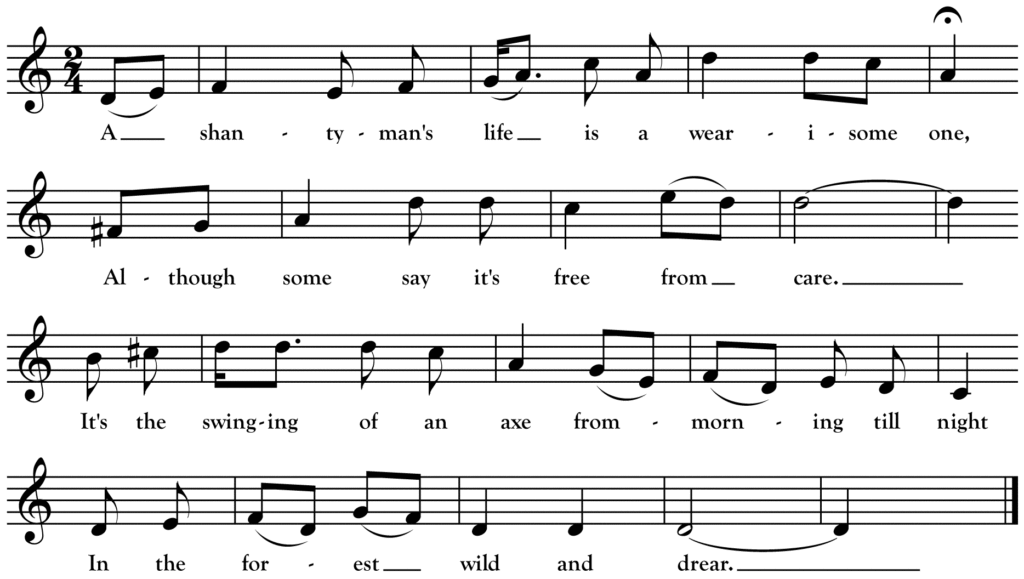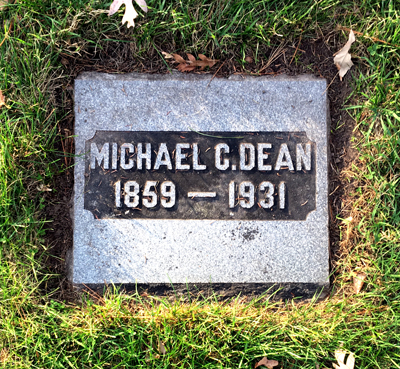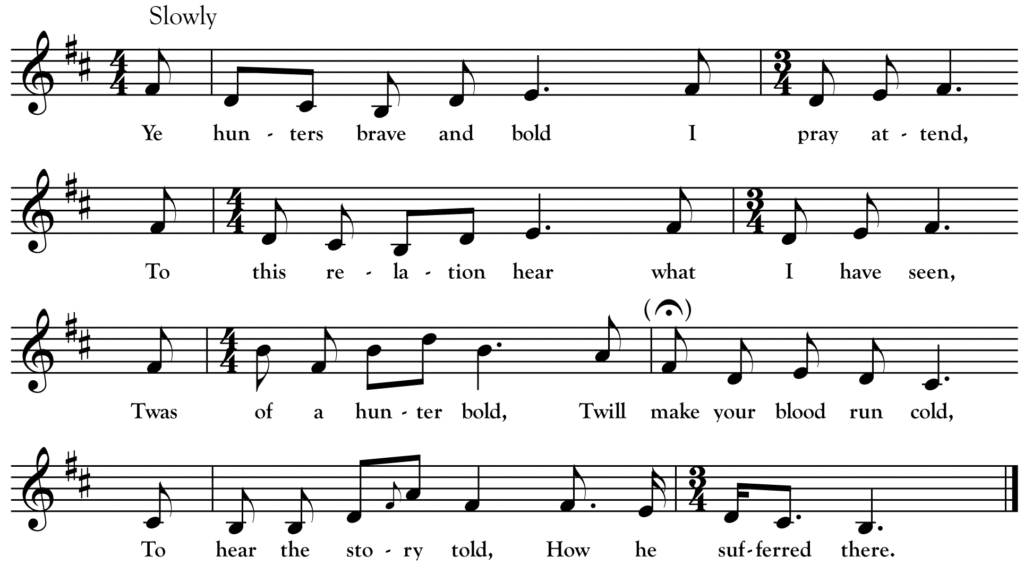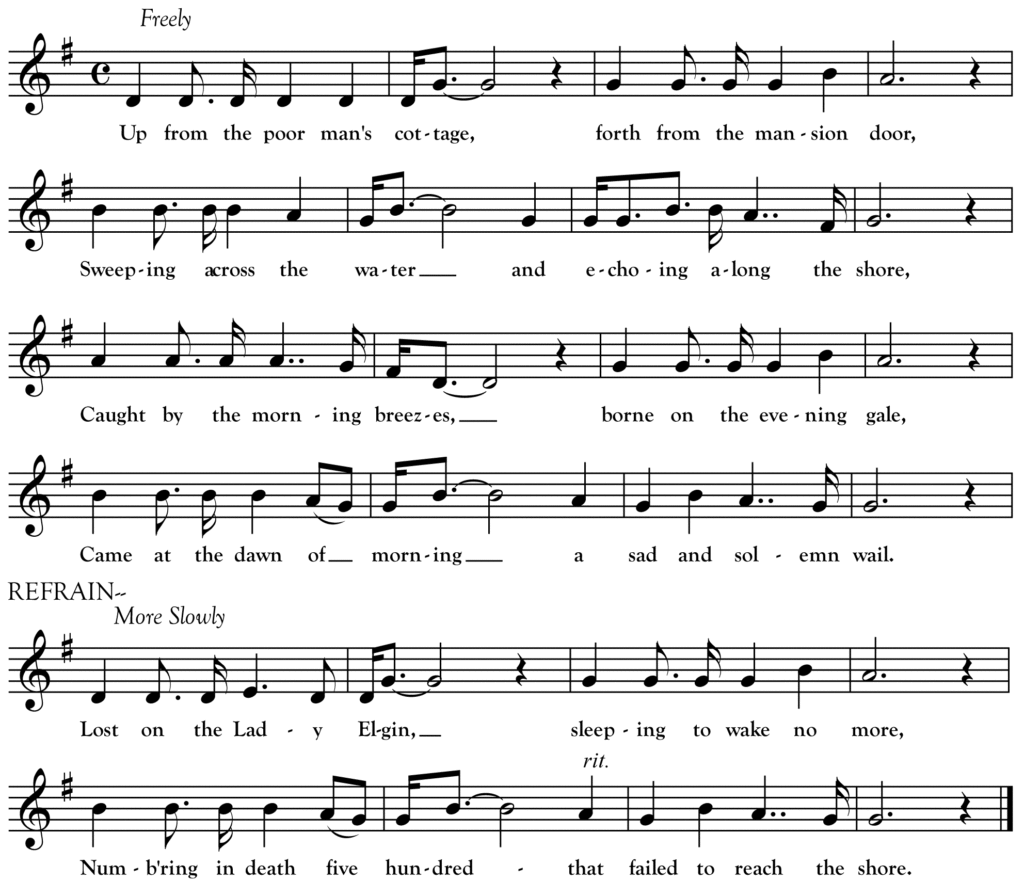Shanty Man’s Life
A shanty man’s life is a wearisome one,
Although some say it’s free from care,
It’s the swinging of an axe from morning till night,
In the forest wild and drear,
Or sleeping in the shanties dreary
When the winter winds do blow,
But as soon as the morning star does appear,
To the wild woods we must go.
At four o’clock in the morning our old greasy cook calls out,
“Hurrah, boys, for it’s day,”
And from broken slumber we are aroused,
For to pass away the long winter’s day.
Transported as we are from the maiden so fair,
To the banks of some lonely stream,
Where the wolf, bear and owl with their terrifying howl,
Disturb our nightly dreams.
Transported from the glass and the smiling little lass,
Our life is long and drear;
No friend in sorrow high for to check the rising sigh,
Or to wipe away the briny tear.
Had we ale, wine or beer our spirits for to cheer,
While we’re in those woods so wild,
Or a glass of whiskey shone while we are in the woods alone,
For to pass away our long exile.
When spring it does come in double hardship then begins,
For the water is piercing cold;
Dripping wet will be our clothes and our limbs they are half froze,
And our pike poles we scarce can hold.
O’er rocks, shoals and sands give employment to old hands,
And our well bended raft we do steer,
Oh, the rapids that we run, they seem to us but fun,
We’re the boys of all slavish care.
Shantying I’ll give o’er when I’m landed safe on shore,
And I’ll lead a different life,
No longer will I roam, but contented stay at home,
With a pretty little smiling wife.
_________________
A note on an early broadside printing of this song about the hardships of winter logging work says it was composed by George W. Stace of “La Crosse Valley, Wis[consin].” In addition to the version above, from Minnesota singer Michael Dean, Franz Rickaby also collected a version from Albert Hannah of Bemidji (my hometown). Rickaby noted that “shanty boy” was a more common term than “lumberjack” among old time loggers who worked in the live-in winter camps where the bunkhouse was referred to as the “shanty.”
The song depicts the trials of enduring a winter without access to liquor (or female companionship). In his Songs of the Sailor and Lumberman, William M. Doerflinger writes that “after about 1860 liquor fell under ban in almost all camps. Loggers put up with this hardship, sometimes making quick trips downriver to ‘see the dentist.’” In an oral history interview with Wirt Mineau (b. 1878) who logged on the Minnesota side of the St. Croix Valley, Mineau said “No, there wasn’t any liquor allowed in the camps, but sometimes they had some.”
The melody used by Dean (and Hannah) is related to that of the Irish song “The Boyne Water.” Versions of the old ballad “Sir Neil and Glengyle” also use a similar air.
The Lost Forty arranged Dean’s version of “Shanty Man’s Life” and shot our monthly video at the North West Company Fur Post in Pine City just a few miles from where Michael Dean is buried. The above transcription is my attempt to capture Dean’s singing of the song which you can hear for yourself at the Minnesota Folksong Collection website. Dean varies the melody in the second verse. Randy and I made some changes to the text and melody for our version.
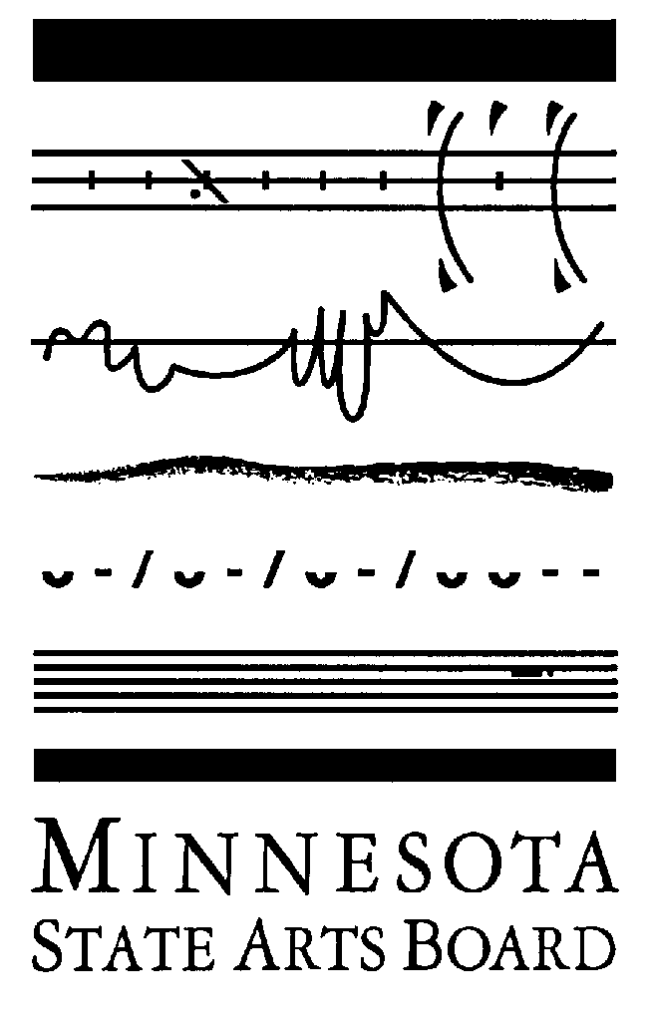

This activity is made possible by the voters of Minnesota through a grant from the Minnesota State Arts Board, thanks to a legislative appropriation from the arts and cultural heritage fund.

